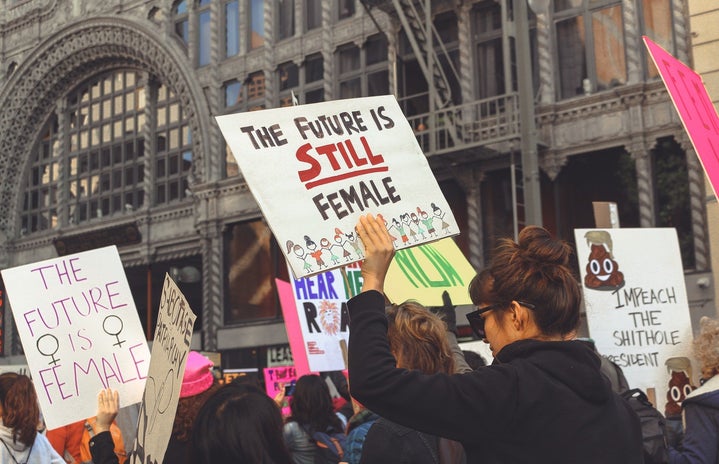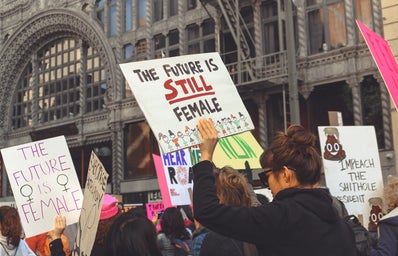TW: Discussions of rape and sexual assault
The phrase ‘not all men’ has become part of popular vernacular in the last few years. Although it originally rose as an anti-hero, anti-feminist meme in 2014, it seemed to have an etymological resurgence following the success of the #metoo movement and the cases of sexual assault and misconduct in Hollywood regarding Harvey Weinstein. The phrase itself is not exclusive to conversations about sexual harassment or assault, but this is typically where it crops up the most. And this is a problem. My intention here is to break down how this phrase is clouding the issue of sexual violence rather than engaging with it, and how it ultimately distracts from conversations about gender inequality.
It feels important to recognise that part of the problem with this language is that it appears to be used differently by men and women. When women use the phrase ‘not all men’, they are usually distinguishing that yes, not all men are in fact rapists or perpetrators of sexual assault. However, there is dialogue online that seems to demonstrate that men use this phrase in two negative ways: either as a rebuttal for reverse sexism, or to play devil’s advocate and remind us that ‘not all men’ are rapists or sexually violent towards women, and that men are victims of sexual violence too. I take issue with both stances because I find it hard to believe that those having serious conversations about sexual violence ever disputed that men are not also victims of it. Secondly, if you choose to only show concern about the numbers of men who are victims of sexual violence simply to shift the focus from the higher numbers of female victims, then your attempt at distraction is transparent.
Nevertheless, there is a third, grey area where ‘not all men’ makes an appearance that is equally as problematic as the first two. It may be used by men to tactically separate themselves from those that have committed sexual assault. In this instance, the problem is that this is not from a place of neutrality. Again, it is from a position of self-interest and an attempt to assert innocence in the societal problem of sexual violence against women, rather than engaging with it. If discussing sexual violence towards women makes you feel uncomfortable or disinterested, you should remind yourself that having the option to choose to be interested in sexual violence (and largely being unaffected by these issues) means that you are in a position of privilege that is not shared by everyone else. Furthermore, if you feel the need to assert your blamelessness in sexism or sexual violence, newsflash, you do not deserve a round of applause for doing the bare minimum and not sexually assaulting anyone.
Ultimately, for men to even attempt to dispute female concerns with these three words is, in my opinion, an attempt to dispute the problem of sexual violence rather than engage with it. One could argue that this shares the same colours as men arguing the case for reverse sexism and that ‘men deserve rights too’. Personally, I see this as nothing else but an attempt to move men to the centre of the discussion. And in case you had forgotten, not everything is about men and masculinity. While it is true that men do suffer consequences of patriarchy, women will always suffer the consequences to a greater extent. The higher number of female victims of sexual violence is just one example of this. Furthermore, in their disruption of feminist concerns it is not coincidence that there are men who like to remind us that it is ‘not all men’ that are the problem, while simultaneously throwing around the derogatory term ‘feminazi’. If you use this term you are letting everyone else know that not only are you intimidated by outspoken women, but you are also complicit in the reason that attitudes to consent and sexual violence need to urgently change. ‘Not all men’ is still too many men.



